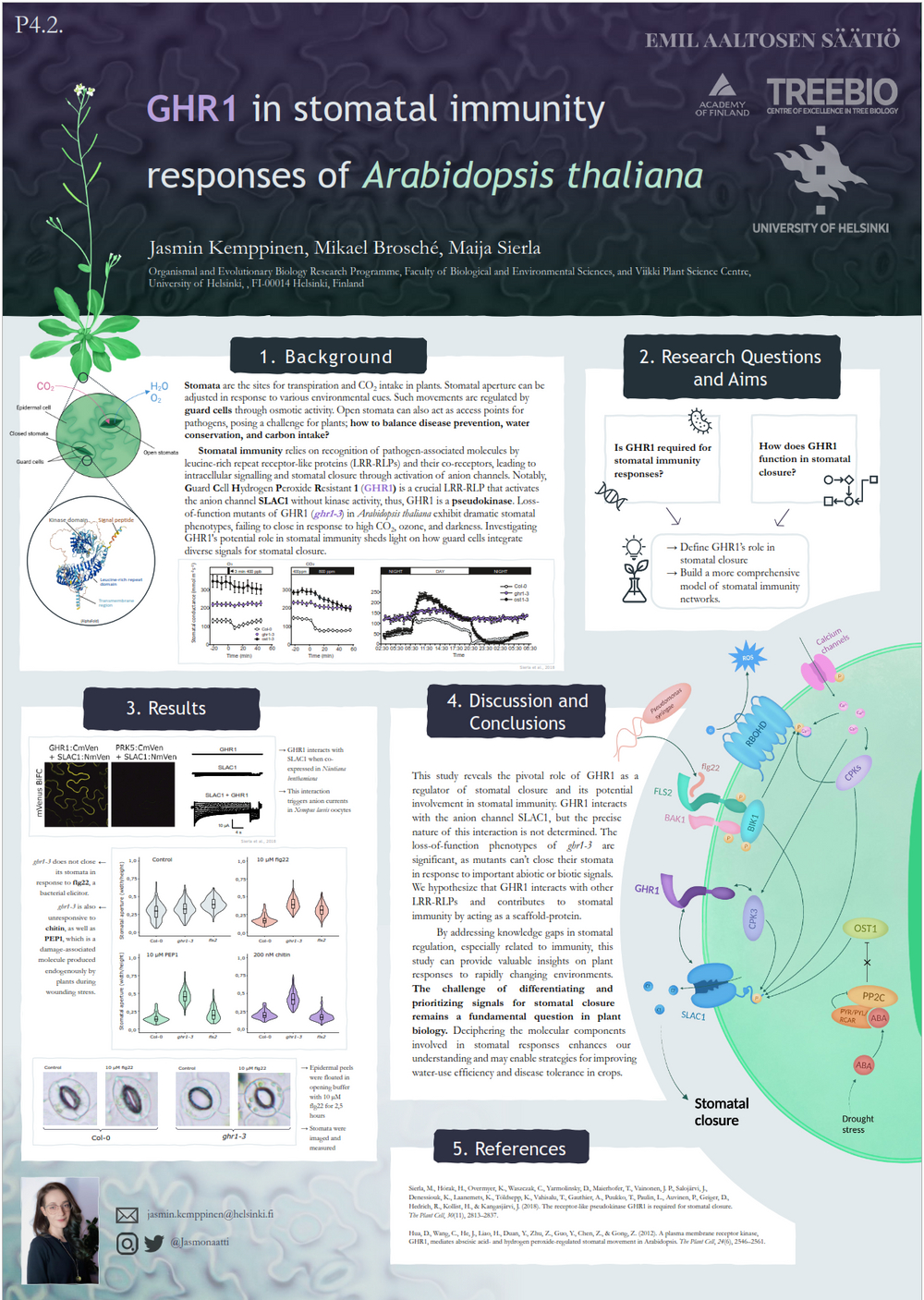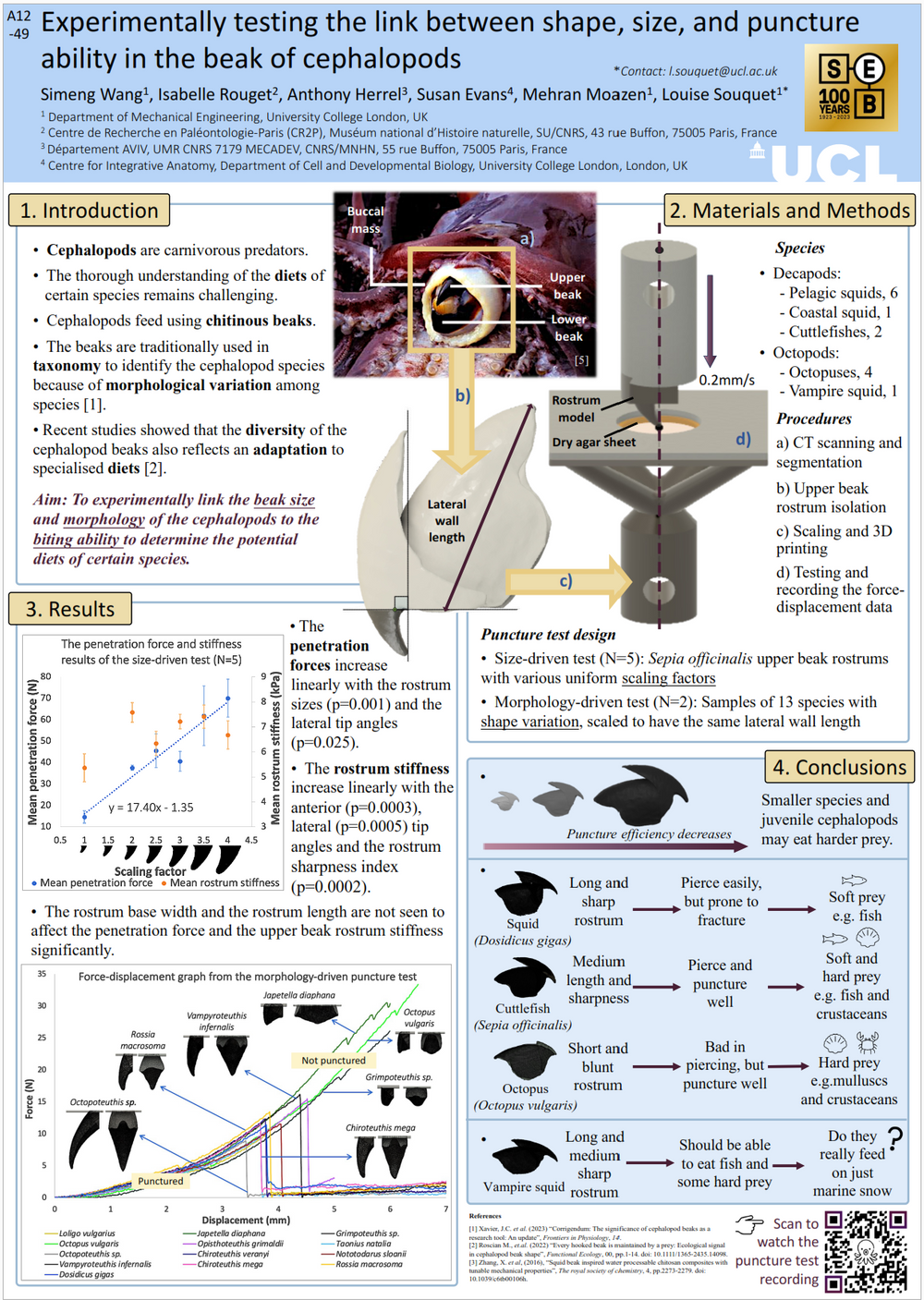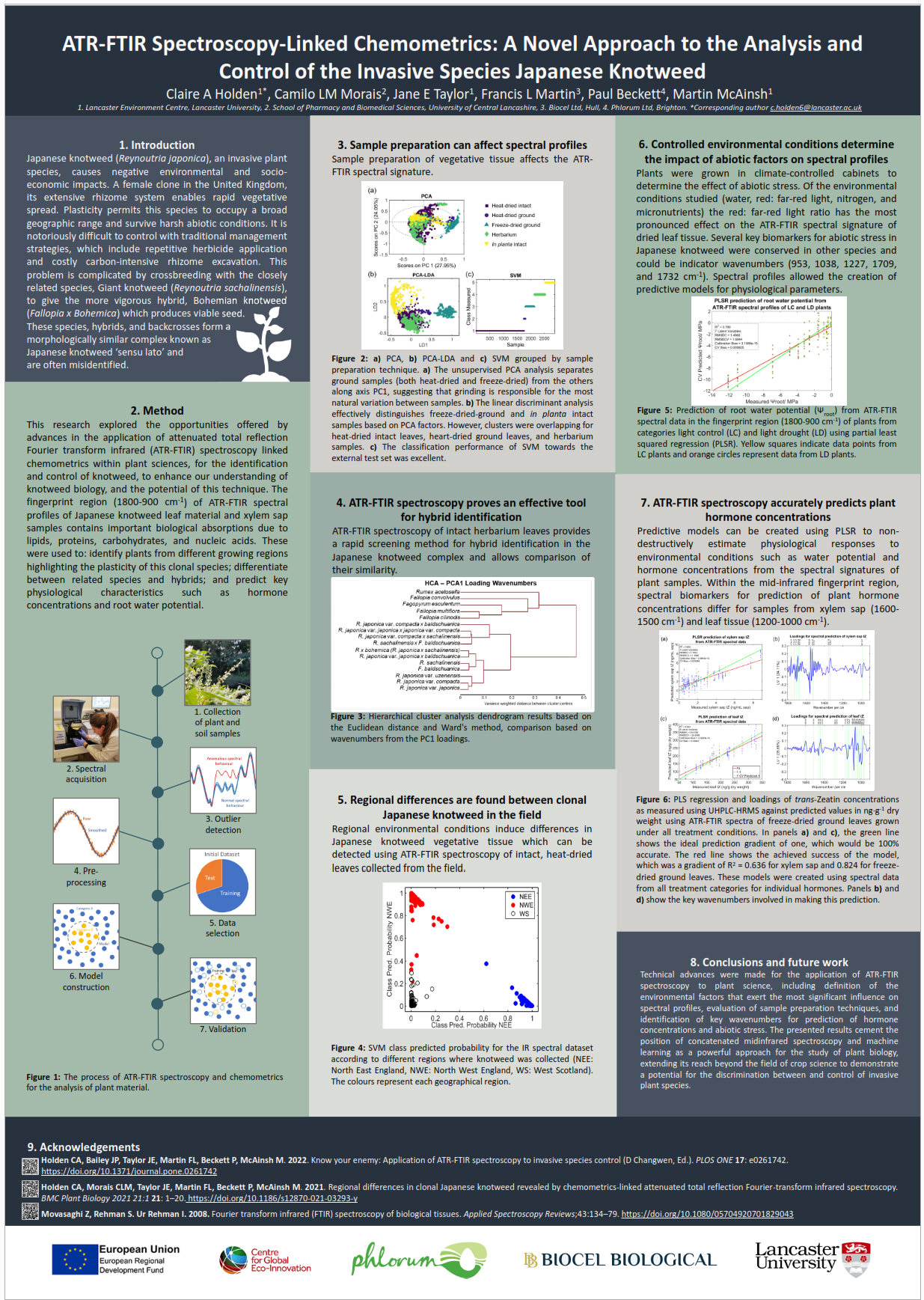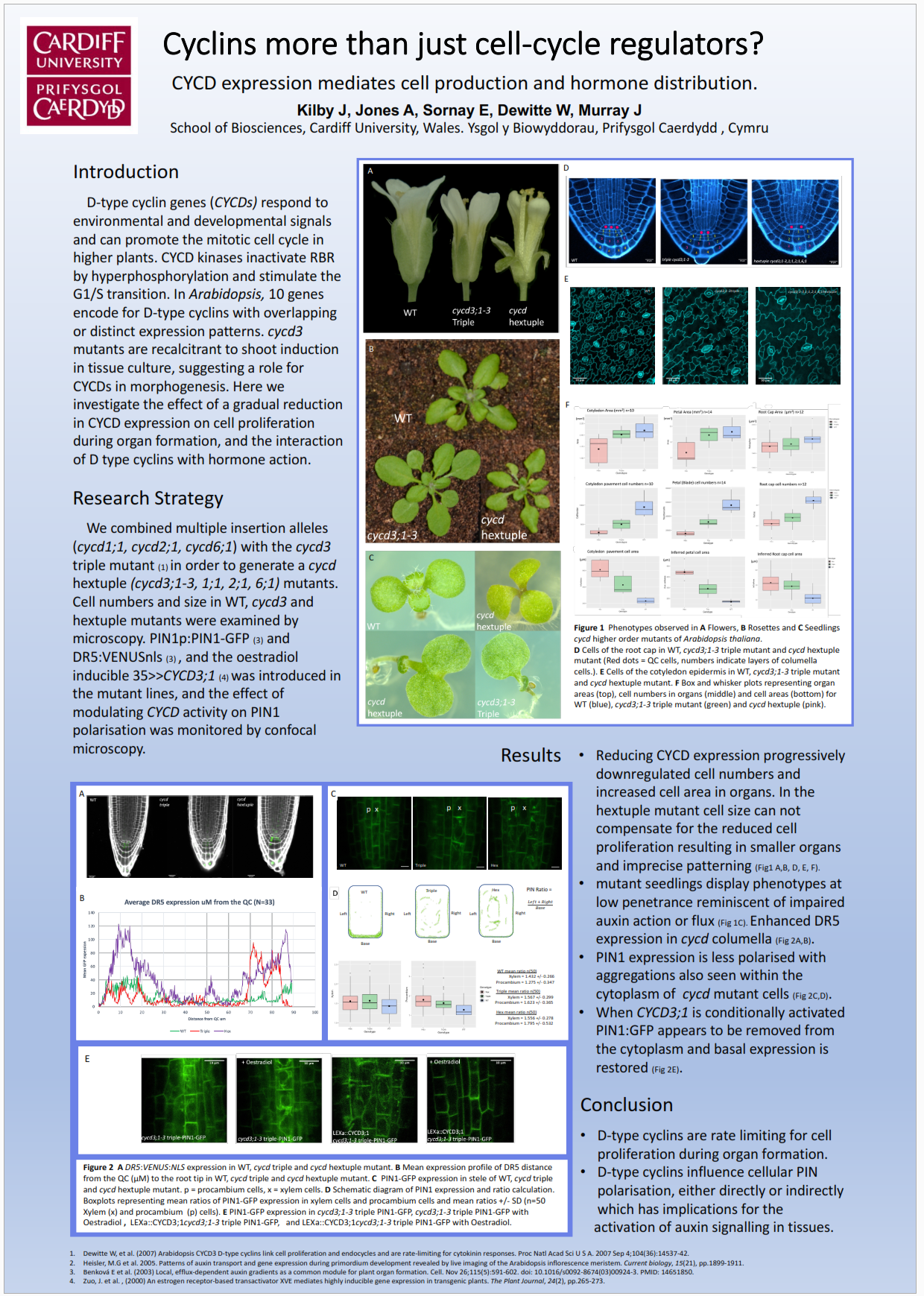Irene Manton Winners 2023
The Irene Manton Poster Prize is open to students and early career scientists and takes place at the SEB Annual Conference. A prize of £100 is awarded to the best poster in each section (Animal, Cell, Plant and OED). The winners this year were announced during the SEB Annual Conference in Edinburgh.
Our congratulations to this year's winners!
Plant Section
Plant section:

Winner: Jasmin Kemppinen

Jasmin obtained her BSc and MSc from the University of Helsinki, majoring in plant physiology and development. Her Master's project focused on chloroplastic ROS signalling and the molecular regulation of light stress. In 2021, she embarked on her PhD journey in Maija Sierla's group with the support of the Emil Aaltonen Foundation grant for young researchers. Jasmin's current research investigates the role of a leucine-rich repeat receptor-like protein GHR1 in stomatal immunity networks. Her primary interests include the mechanisms of pathogen perception and the modulation of diverse signals leading to stomatal closure. Through her work, she aims to identify GHR1's interactors in stomatal immunity signalling and shed light on the rapid cellular events governing this essential defence mechanism.”
Animal Section
Animal Section :

Winner: Simeng Wang

Simeng Wang received her BEng degree in Mechanical Engineering from University College London in 2023. Fascinated by marine animals, she reached out to Louise Souquet and Mehran Moazen during her study at UCL and arrived at cephalopod beaks as her research topic for the 3rd-year individual project. Combining her experience in 3D modelling and mechanical testing, Simeng proposed an alternative way to investigate the position of diets in driving the evolution of the cephalopod beak diversity. She constructed a relationship between the cephalopod biting ability and the upper beak rostrum morphology through uniaxial puncture tests and FEA simulation. Through her project, she aims to further the understanding of the cephalopod biting mechanism and to attempt a prediction on the potential diets of individual species. Simeng is currently working on the publication of her article and will pursue a MPhil in Energy Technology at the University of Cambridge.
Cell Section
Cell section (two winners):

Winner: Claire Holden

Claire Holden graduated from Lancaster Environment Centre in 2023 with a PhD in Biological Sciences. Her PhD research utilised a combination of chemometrics and infrared spectroscopy for the investigation of the invasive plant species, Japanese knotweed. This project was supported by the environmental consultancy Phlorum Ltd and the Centre for Global Eco-Innovation. She is particularly interested by the ways in which chemistry can enhance our understanding of biological systems, a curiosity which has grown since her graduation from Durham University with a master’s in science. Previous research topics have included the role of reactive oxygen species in the stress tolerance of plants, and the effect of fluorescent synthetic retinoids on human skin cells. This work was further developed by LightOx to create new therapeutic solutions for early-stage oral cancer.

